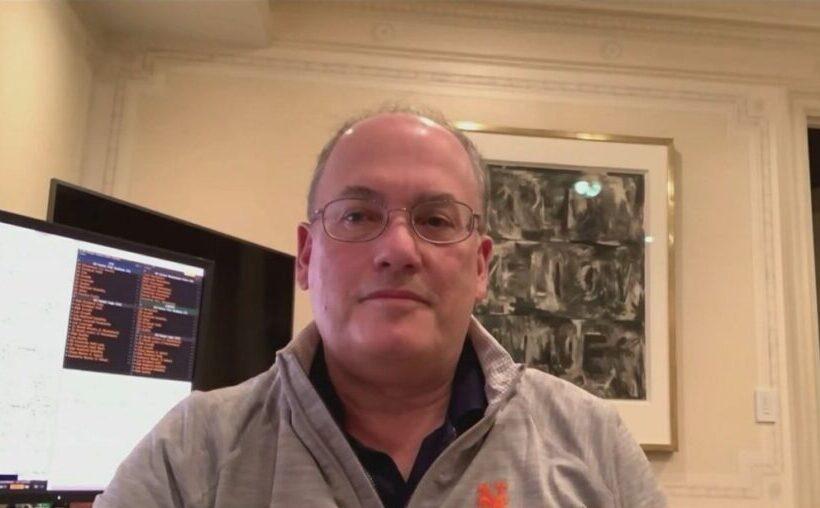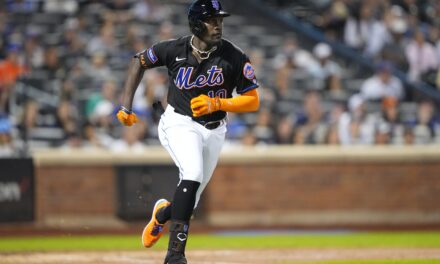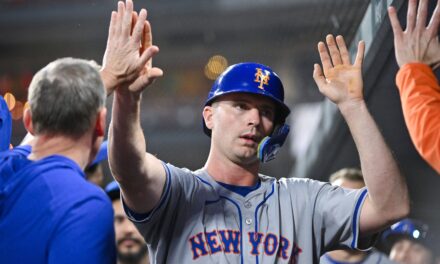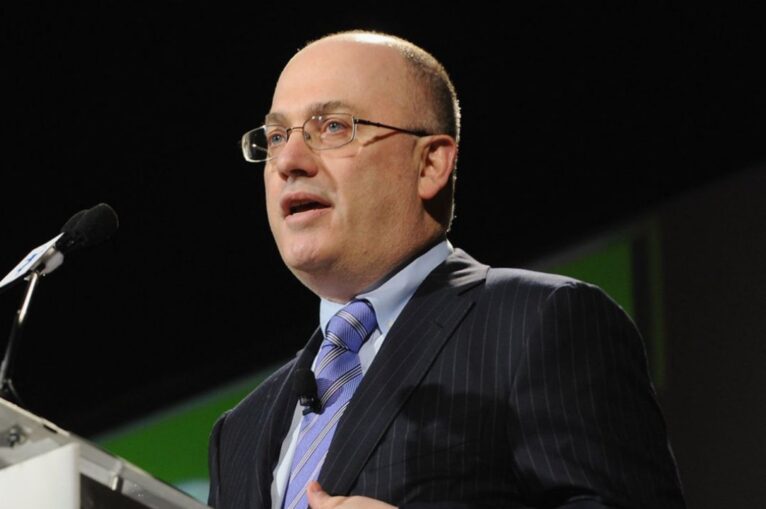
On October 30, 2020, Major League Baseball owners took a vote. It was a vote that would potentially shift the balance of power in baseball for decades to come. This fact was not lost on the owners who gathered to consider the purchase of the New York Mets by Steve Cohen. But when the votes were tallied, Cohen received 26 ayes and only four nays. A new era in baseball and sports as a whole, thus began.
Steven Cohen, a man worth north of $14 billion, was the new owner of the Mets and by a substantial margin, the richest owner in baseball. The landscape of baseball changed that October day and with it, possibly the very foundation of the sport. Ron Swoboda, speaking for millions of Mets fans summed things up nicely, telling reporters:
“I think it’s the best thing that could’ve happened to them (the fans),” said Swoboda, an iconic figure of the Mets’ 1969 World Series victory. “That franchise needs to operate like a major market team. For too long, they were operating like a small market team, looking for bargains here and there. I’m liking everything I see right now.”
Cohen does not surround himself with bargains. Two of his pieces in his precious art collection, La Reve by Picasso and Rabbit by Jeff Koons are worth nearly a quarter of a billion dollars. Hopefully his new baseball team will contain pieces of similar value.
Two months have passes since Cohen took the reins of the Amazins’ and in that short amount of time, much as changed. What follows is not a moment by moment timeline of every move that has been made, just the highlights and the effect that this Mets fan from Great Neck has had on the team.

Front Office
Recently in the New York Post, Cohen was interviewed by columnist Steve Serby. The topics were wide ranging and gave fans a nice look in to the make-up of this man. When asked about his management style, Cohen replied:
” I hire good people, smart people, people like (team president) Sandy Alderson and (GM) Jared Porter, and then I set our goals and hold people accountable. I don’t micromanage, and I let people have the runway to do their jobs. If there’s a problem, I get more involved, but in the meantime, I keep tabs on how things are going.”
The ink was hardly dry on his paperwork to buy the Mets, when pink slips began to fly all over Citi Field. Gone were GM Brodie Van Wagenen and several of his lieutenants — assistant general managers Allard Baird and Adam Guttridge, executive director of player development Jared Banner and special assistant to the GM Omar Minaya.
Cohen hired one man, Sandy Alderson, to clean up the mess and to hire new personnel who reflect the new owner’s management style. Weeks before the sale of the Mets became official, Alderson was tabbed by Cohen to be the president of the team answerable directly to him.
Alderson has been in baseball in one capacity or another for nearly four decades and was the GM of the Mets from 2010-2018. Cohen, in a statement, said of his first key hire:
“Sandy is an accomplished and respected baseball executive who shares my philosophy of building an organization and a team the right way,” Cohen said. “I am excited to have Sandy in a key leadership role with the Mets….”
Even former Mets manager Terry Collins was delighted at the new hire, commenting on his former boss: “He’s the perfect choice,” Collins said “He knows the team, knows the organization and has a feel for the city. What he has done in baseball speaks for itself, and he is so well respected in the game. He’s the total package.”
My full article on a look at Sandy Alderson is here.
Once the Mets sale was approved, Alderson was officially the team president and got busy, but not necessarily in the way many Mets fans wanted. Hungry for high-priced talent and a competent GM, Alderson bothered some fans as instead proceeded slowly, interviewing candidates and players at his own pace.
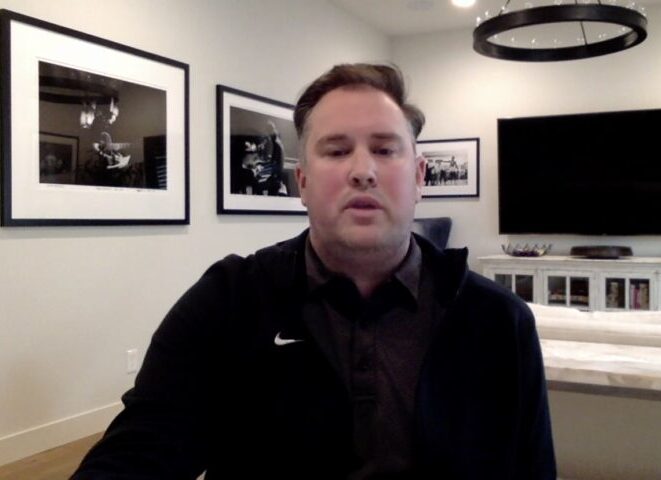
But scarcely six weeks into his new job, Alderson hired Jared Porter to fill the GM role. Porter, an executive who has been part of four World Series championship teams, was received as an excellent choice by the Mets and won nearly universal praise. His new boss was effusive, noting:
“Jared has proven himself at every level and in every position he has held, earning respect from his peers throughout baseball,” Mets president Sandy Alderson said in a statement. “He is deeply knowledgeable in all aspects of the game and has worked with several accomplished baseball executives. Jared is prepared for this next challenge.”
The most notable executive Porter has worked with was Theo Epstein. Under Epstein, Porter was responsible for many details in the front office, but excelled in scouting. He has an encyclopedic mind when it comes to players, their stats, strengths and weaknesses. He wants, above all else, a “cultural shift” in the Mets noting:
“It’s important to create a situation where you’re a hard team to play against,’’ Porter said. “I think that’s something we can attack right away. It’s important to start to build a winning culture.”
His gritty yet friendly style was exemplified in this note to reporters about how he sees any job:
“You have to dominate the job that you’re in,” Porter said. “If you do that, if you focus on that and dominate that, you’re going to get other opportunities. So that’s kind of what I live by, is just dominate the job that I’m in.”
My full article on Jared Porter is here.
Then, hardly a week ago, another position was filled as Zack Scott, also from the Theo Epstein tree, was hired to be the Mets senior vice president and assistant general manager. Said Porter of his new right-hand man:
“I’ve known Zack for over 15 years and worked with him daily for 10 of those years,” Porter said in a statement. “He’s a strong leader who is a very creative and dynamic thinker. Zack is well rounded in all areas of baseball operations and will promote synergy and collaboration among all of our departments with an emphasis on research and development.”

New Additions
James McCann was the second major free agent acquisition for the Mets and it filled a hole the Mets sorely needed. The new management has commented they want a strong team up the middle and that starts with catcher. In mid-December, McCann inked a four year, $40.6 million contract to become the Mets’ backstop. Here again, the strong front office helped attract the thirty year old catcher to Queens:
“I think one thing for me, personally, was the direction the New York Mets were headed in,’’ McCann said in a Zoom call.
“From the moment we heard from the Mets this offseason, they were definitely a team high on the list, just because of the guys they have in the clubhouse, but also the addition of the new owner, Sandy [Alderson, team president] and Jared [Porter, new general manager]. Everything is trending in the right direction. That made the New York Mets obviously a very attractive landing spot.”

To add depth to the back of the bullpen, the Mets signed right-hander Trevor May to a two-year contract worth about $15 million. The deal was finalized in early December. His reasons for coming to the Mets were almost identical to that of McCann’s, telling reporters:
“To be honest, one of the biggest things was just kind of the buzz around Steve [Cohen] and the purchase of the team and the excitement of all the changes that are happening,” May said. “My immediate reaction was wanting to be a part of something like that.”
May will be reunited with his old pitching guru from the Minnesota Twins, Jeremy Hefner.
The Tweets
It’s official , we are closed .
— Steven Cohen (@StevenACohen2) November 6, 2020
From that Tweet, a new era in Mets communication was born. The new owner of the Mets is tickled by his presence on Twitter and plans to continue doing so, telling Serby:
“I love our fans and appreciate their knowledge of the game and their passion for the team. They are the greatest fans in baseball, in sports, in New York, and beyond.
I’ve had a great time talking with them on Twitter and I thank them for the enthusiastic welcome they’ve given my wife, Alex, and me.”
From our family to your family . Have a happy , healthy Thanksgiving https://t.co/RdLEhnxkuG
— Steven Cohen (@StevenACohen2) November 26, 2020
And of of course, who could forget the Jersey controversy?
Let’s take a vote. Carvel or black jerseys
— Steven Cohen (@StevenACohen2) December 19, 2020
And his interaction with fans:
I will be answering your Twitter questions with Howie Rose . Watch tomorrow at 7pm on the Mets YouTube channel and Facebook.
— Steven Cohen (@StevenACohen2) December 22, 2020
There are many more tweets, but whereas past ownership shied away from the public, Cohen seems to embrace them. And it it is not likely to change as in several interviews, Cohen has professed his love for his new social media platform.
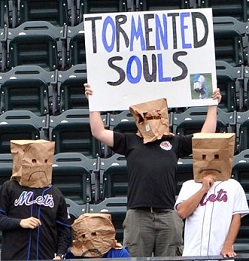
The Cultural Shift
The Mets under the Wilpons were not a team that garnered respect. Quite the opposite actually as they made some business decisions that a first year Wharton student would scoff at. Agents, front offices of other teams, and even some players regarded the Mets as a second-rate franchise, always in the shadow of the Yankees, and always a step behind. Mets fans have endured this and yet have stayed faithful.
That faith is about to be rewarded (and that picture above hopefully has seen its last publication).
Steve Cohen has brought hope and encouragement to this still young franchise and a positivity not seen in these parts in a long time. Both Trevor May and James McCann have noted that much of the reason why they came to New York was because the air of winning, commitment and excitement surrounding the Mets. No doubt future free agents will feel the same.
Alderson has hired two highly qualified executives in Porter and Scott and will give them the leeway to build a strong team and a strong farm system that should yield a winning formula for a long time.
Gone are the days where fans hang there heads, roll their eyes and shout, “Same Old Mets”. Although the Mets will not go errorless in the field as well as in the front office, it’s nice to hear that mistakes will be the exception and not the rule. It’s also nice to hear how agents, executives and players now regard the Mets. It’s a whole new ballgame. Respect, thy name is Mets.
And as Cohen institutes more of his policies, and as the new members of the front office get comfortable with one another, the possibilities are endless. Not a bad effort for two months.
Cohen has been asked many times since becoming the owner what motivates him, what is it that gives him inspiration?
” I always tell people, Don’t be afraid to go for it. When I was starting my business, people kept telling me why I shouldn’t do it. The lesson I learned from that is to not be afraid to go for it and that’s what I tell people.”


